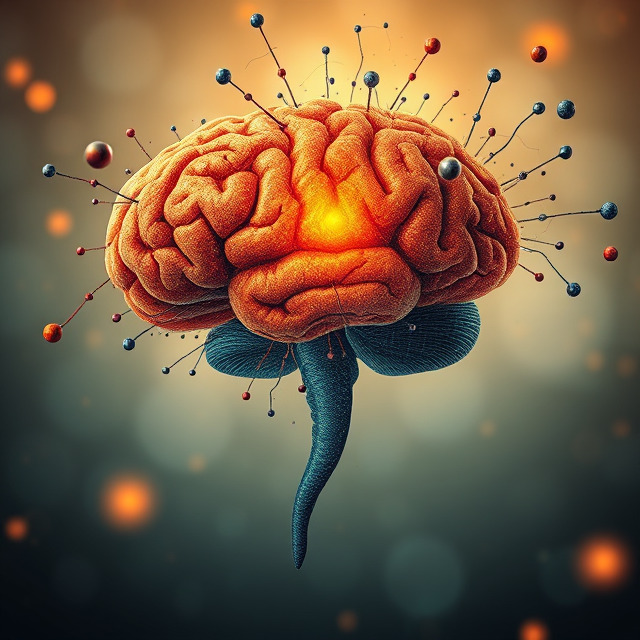Psychology is a colossal field that looks to investigate, clarify, and understand the complexities of human judgment abilities and behavior. As a teacher, it is both inquisitive and fundamental, giving profitable bits of data into how we think, feel, act, and relate to the world around us. The word “psychology” itself comes from the Greek word “judgment skills,” meaning “soul” or “judgment aptitudes,” and “logos,” meaning “consider.” This combination reflects the field’s central center: the consideration of judgment abilities and behavior.
In this web journal post, we will investigate the varying branches of the brain ask approximately, its history, key hypotheses, applications, and noteworthiness in our everyday lives.
The History of Psychology
Psychology, in its cutting-edge layout, has advanced over centuries. Early analysts, such as the old Greeks, laid the establishment for understanding human behavior and mental shapes. Realists like Plato and Aristotle considered questions concerning the judgment abilities and its connection to the body. In any case, the brain asks around as a particular coherent teacher made such a brief time afterward, in the middle of the 19th century.
One of the most compelling figures in the alter of Brain Ask Almost was Wilhelm Wundt, who is frequently respected as the “father of Appear Day Brain Ask Almost.” In 1879, Wundt built up the, to begin with mentally explore office in Leipzig, Germany, stamping the starting of brain ask almost as an exploratory science. He centered on considering cognizant encounters through thought, a technique that included analyzing one’s claim mental processes.
Soon after, other starting clinicians like Sigmund Freud, William James, and John Watson contributed to the field’s headway. Freud showed treatment, a hypothesis centered on the uninformed judgment aptitudes and their influence on behavior. William James, as frequently as conceivable hinted to as the father of American brain exploration, made a qualification to develop functionalism, a school of thought that emphasized the down-to-soil capacities of the judgment abilities. John Watson and B.F. Skinner contributed to behaviorism, a hypothesis that battle behavior can be reviewed and caught on without reference to mental processes.
Today, brain exploration is an exciting field with distinctive centers of seeing and techniques utilized to consider human behavior and mental processes.
Branches of Psychology
Psychology is a wide teach with a few branches, each centering on unmistakable focuses on human behavior and mental working. A few of the principal branches include:
1. Clinical Psychology
Clinical brain examination centers on diagnosing and treating mental success disarranges. Clinical examiners work with people managing a run of mental issues, including uneasiness, debilitation, PTSD, and schizophrenia. They may utilize particular pleasing approaches, such as cognitive-behavioral treatment (CBT), treatment, and humanistic treatment, to offer assistance to patients to oversee their side impacts and move forward with their mental well-being.
2. Cognitive Psychology
The cognitive brain asks around and considers mental shapes such as understanding, memory, problem-solving, tongue, and decision-making. Agents in this field are interested in understanding how individuals get, arrange, and store data. Cognitive brain explore has played a essential parcel in forming ranges like fake bits of information and instruction by giving bits of data into how people think and learn.
3. Formative Psychology
Developmental brain examination looks at how people make and alter their life trust. This division considers physical, energized, social, and cognitive movement from most prompt stages through adulthood. Formative clinicians look at centers like affiliation, child-raising styles, ethical progress, and creating, making a differentiate us get it how individuals advance over specific life stages.
4. Social Psychology
Social brain exploration centers on how individuals’ contemplations, suspicions, and behaviors are influenced by the closeness of others. This division looks at subjects such as collect components, social influence, inclination, debilitating vibe, and interpersonal affiliations. By considering these subjects, social analysts select up experiences of humans cleverly and the variables that shape social behavior.
5. Industrial-Organizational Psychology
Industrial-organizational (I-O) brain examination applies mental measures to the working environment. I-O clinicians consider centers like laborer inspiration, work fulfillment, organization, and organizational behavior. They also work to move forward working environment viability and orchestrate sensible frameworks for enrollment, arranging, and execution evaluations.
6. Characteristic Psychology
The biological brain asks approximately, as well known as biopsychology or neuropsychology, to analyze the relationship between the brain, on-edge framework, and behavior. Examiners in this field think nearly how brain structures and neurotransmitters influence mental shapes and behaviors. This division routinely joins utilizing neuroimaging strategies like MRI and PET channels to investigate the workings of the brain.
7. Success Psychology
Health brain exploration centers on the parcel of mental components in physical thriving. Success clinicians consider how pushed, altering components, and way of life choices affect and sweep thriving. They also look at ways to advance thriving behaviors, evade ailment, and move forward the quality of life for people with consistent conditions.
Key Mental Theories
Over a long time, a few key mental speculations have risen to clarify human behavior and mental shapes. Here are a few of the most able ones:
1. Behaviorism
Behaviorism is a school of thought that emphasizes the parcel of the environment in forming behavior. According to behaviorists, all behavior is learned intuitively with the environment, and mental shapes ought to be considered by watching outside behaviors or conceivably than inside mental states. B.F. Skinner and John Watson are two of the most recognizable figures related to behaviorism. They recognized that behavior might be molded through support and punishment.
2. Cognitive Theory
The cognitive hypothesis centers on the mental shapes included in affirmation, memory, problem-solving, and decision-making. The hypothesis endorses that our contemplations and translations of occasions influence our behavior and assumptions. One of the key figures in cognitive brain examination is Jean Piaget, who reviewed the cognitive alter of children. Another major influence is Aaron Beck, who made cognitive treatment, an approach utilized to treat disarranges like depression.
3. Humanistic Psychology
Humanistic brain examination emphasizes individual progression, self-actualization, and free will. It endorses that people have a characteristic drive to realize their full potential and live satisfying lives. Carl Rogers and Abraham Maslow were two key figures in this change. Maslow’s chain of command of needs, which solidifies physiological needs, security, respect, and having a put, regard, and self-actualization, is a central concept in humanistic psychology.
4. Psychoanalytic Theory
Psychoanalysis, made by Sigmund Freud, centers on the parcel of careless judgment aptitudes in influencing behavior. Freud recognized that questionable ignorant clashes from childhood might lead to mental disarranges in adulthood. He made strategies like free organization together and dream examination to reveal these secured-up contemplations and estimations. Whereas treatment has been critiqued over a long time, its influence on the field of brain exploration remains significant.
Applications of Brain Examine in Standard Life.
Psychology is not sensible and instructive taught; it has a wide run of real-world applications that affect our everyday lives. Here are a few key ways in which brain examination is applied:
1. Mental Thriving and Therapy
Clinical brain ask-around has an orchestrated impact on mental success treatment. Medicines like cognitive-behavioral treatment (CBT) have made a qualification millions of people coordinate conditions like uneasiness, wretchedness, and post-traumatic pushed clutter (PTSD). Examiners also provide counseling to offer assistance to people suffering from life challenges, relationship issues, and individual growth.
2. Education
Cognitive and formative brain explore has played a fundamental parcel in forming teacher hones. Understanding how children learn, handle data, and make cognitive licenses educates them to make more compelling instructing procedures. The utilization of positive reinforcement, individualized instruction, and the centrality of early childhood upgrades are key revelations in instructor psychology.
3. Working environment and Organizational Behavior
I-O brain exploration is basic in progressing work environment efficiency and specialist well-being. Understanding how to move specialists, diminish amplify, and upgrade work fulfillment can lead to way superior execution and more invaluable work circumstances. I-O examiners offer assistance to organizations with enrollment, arranging, and pro-development.
4. Success and Well-being
Health brain exploration contributes to advancing solid behaviors, such as commonplace workouts, sound eating, and amplifying organization. Clinicians offer assistance to people to get a handle on more beneficial ways of life by tending to components like inspiration, pushing, and the mental boundaries to behavior change.
5. Quantifiable Psychology
Forensic brain exploration applies mental rules to genuine blue things. Consistent inspectors outline the mental competency of criminal prosecutors, permit pro certification in court, and offer assistance law authorization with criminal profiling. Their work plays an fundamental parcel in the criminal esteem framework.

